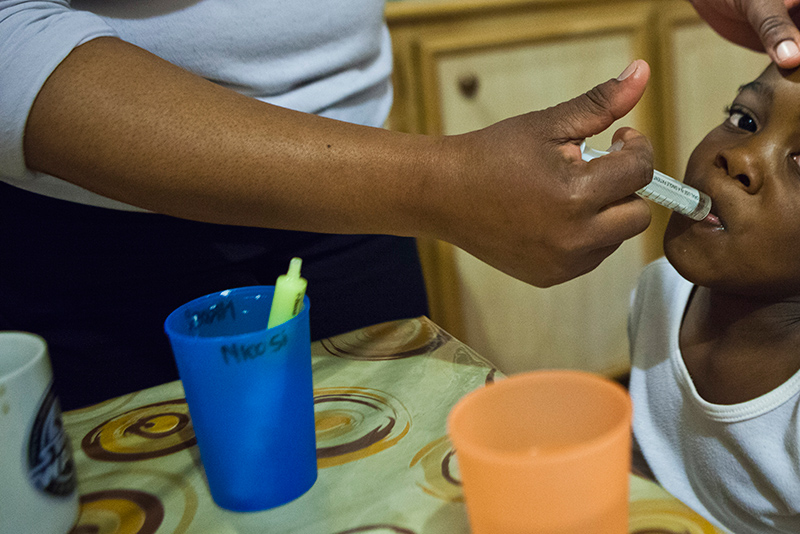Kids Need Improved HIV Treatment
Three-year, 68 percent retention puts children at risk

Rates of retention in care for children receiving HIV treatment in low- and middle-income countries are similar to those for adults, but more interventions are needed to reduce attrition in pediatric care, a study from Boston University School of Public Health (SPH) researchers says.
Matthew Fox, SPH associate professor of epidemiology, and Sydney Rosen, SPH research professor of global health—both with BU’s Center for Global Health & Development—led the first-ever systematic review of pediatric retention, including more than three dozen studies on antiretroviral therapy in 23 countries and more than 55,000 pediatric patients. The researchers estimated that overall, average retention in care was 88 percent after 12 months, 72 percent after 24 months, and 67 percent after 36 months. The 36-month retention rates were higher in Asia (74 percent) than in Africa (66 percent). The review covered 2008 through 2013.
Rates for children continuing in antiretroviral therapy (ART) were similar to those for adults—83 percent after one year, 74 percent after two years, and 68 after three years. Still, the authors say, the number of children who do not continue with long-term treatment is troubling.
“The high rate of attrition seen in pediatric cohorts is concerning given that pediatric disease progression tends to occur faster than for adults in the absence of treatment, and therefore likely means that the distribution of mortality among those lost may be higher than in adults,” they say in the study, published in February 2015 in the journal AIDS. “Interventions to reduce attrition from pediatric care are urgently needed, as are studies that trace the true outcomes of lost pediatric patients.”
Fox and Rosen say there were a number of systematic reviews of adult retention in care, but “limited information” on pediatric retention. They say little work had been done to investigate “the true outcomes” of pediatric patients who are lost to treatment over time, whether because they died or stopped therapy.
“Studies tracing lost pediatric patients are needed to determine this,” they say.
In addition, there were limited data from Asia, only one study from Latin America and the Caribbean, and no data from Eastern Europe, Central Asia, or the Middle East, they say.
The success of programs for prevention of mother-to-child transmission of HIV has meant that fewer children are being infected over time, Fox and Rosen noted. But they say a substantial number of children are still being born infected or are infected after birth through breastfeeding.
The World Health Organization (WHO) estimates that fewer than 300,000 children were newly infected with HIV in 2012, down from a high of more than 500,000 in the early 2000s. The WHO commissioned the pediatric review from Fox and Rosen in 2014.
With current treatment guidelines recommending earlier treatment for HIV-infected children, “substantial resources will continue to be needed to be invested in pediatric HIV care and treatment programs over the coming decades,” the authors say. For children who initiate ART, treatment has been shown to be highly effective with substantially increased survival, in particular when treatment is started early.
Fox and Rosen say more studies on ART retention that include children are needed, with a longer duration of follow-up, beyond 36 months.